How to Navigate Last-Mile Delivery Challenges in Nigeria
A customer places an order online. The payment goes through instantly. The business owner packages the item with care, adds the right label, confirms the order, and dispatches it through a trusted delivery partner. Everything seems to be going smoothly until it gets to the most critical part: the final stretch between the delivery hub and the customer's doorstep. This final leg, known as last-mile delivery, is where things often fall apart. A process that should be simple suddenly becomes frustrating. Deliveries are delayed for hours, addresses are hard to find, riders can’t reach customers, or the package gets returned entirely. For something that looks like a short distance on the map, the last mile ends up causing the most damage to a brand’s reputation.
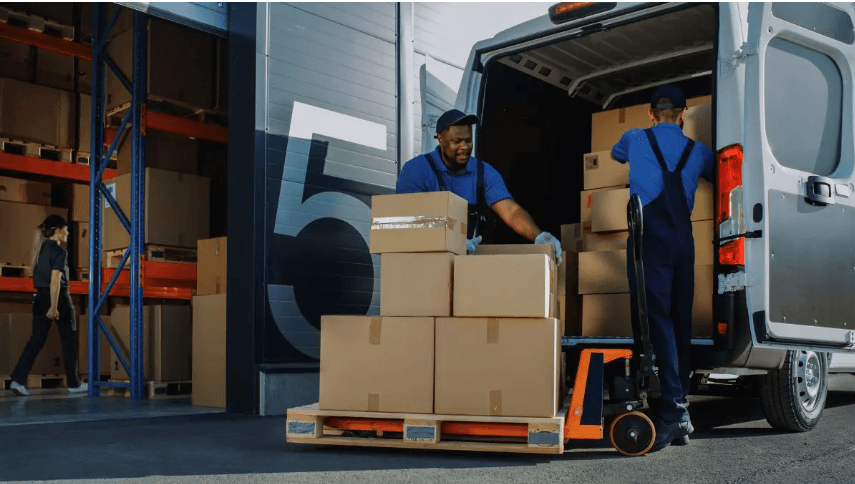
In Nigeria, this challenge is not just common; it’s the reality many business owners and customers deal with daily. Whether it’s traffic gridlock in Lagos, poor road conditions in rural areas, unclear addresses, or communication breakdowns between riders and customers, last-mile delivery is filled with hurdles that can make or break a business. But this isn’t just about moving items from point A to point B. It’s about trust. A successful delivery tells a customer, This business values you. A failed one says, You can’t rely on us. That’s a powerful message, one that affects whether the customer will return or recommend the store to others.
Understanding how last-mile delivery works, and why it often fails, is the first step toward solving it. And the truth is, there’s no single solution. But by unpacking the real challenges behind the scenes and learning how to handle them wisely, business owners can take control of the process, delight their customers, and grow their business with confidence.
This guide is for anyone seeking to enhance deliveries, mitigate customer complaints, and establish a stronger online presence in Nigeria or beyond. Whether you're just starting out or already shipping nationwide, you’ll find insights here that help you turn delivery from a daily struggle into a smart, dependable part of your business.
What is Last-Mile Delivery?
Last-mile delivery is the final handoff, the moment a package leaves a dispatch center and is delivered directly to the customer’s door. It sounds simple enough, but this stretch is often where things go sideways. It’s not just a delivery; it’s the most delicate part of the entire fulfillment journey. This is where all the effort from product sourcing to order confirmation either ends in satisfaction or spirals into complaints and refunds.
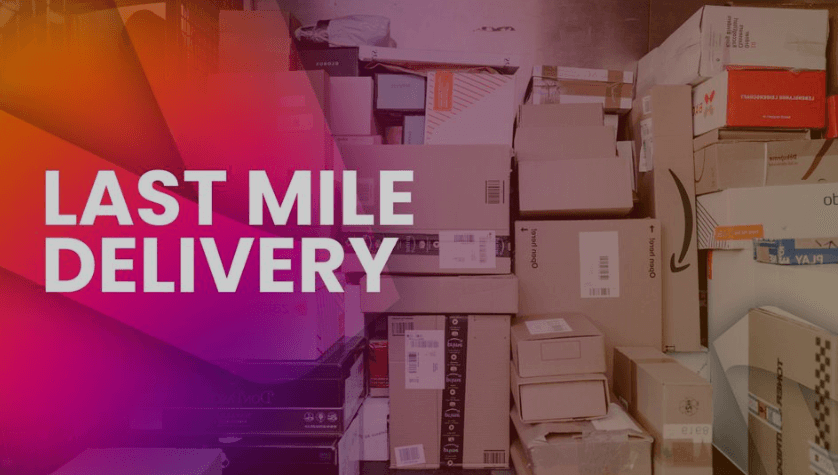
Someone places an order online. It could be a pair of shoes, groceries, or even something as small as a charger. Everything moves quickly through the digital process, payment is confirmed, the item is packed, and it’s handed off to a delivery rider. Now, it’s just one more step: get it into the customer’s hands. But that’s exactly where unpredictability begins.
The rider might struggle with poorly labeled streets, miss the house entirely due to missing signposts, or get caught in traffic that turns a 10-minute drive into an hour. Maybe the customer’s number isn’t reachable, or the weather suddenly makes the route inaccessible. This last stretch, despite being the shortest on paper, holds the highest risk for delay, confusion, and even failed delivery.
And it matters a lot. To the customer, the entire shopping experience is judged by this moment. It doesn’t matter how great your product is if it arrives late, damaged, or not at all. It doesn’t matter how well your website functions or how polite your team is if the customer is left frustrated at the gate. That small window of time between "Out for Delivery" and "Delivered" carries the weight of everything your brand promises.
So when we talk about last-mile delivery, we're not just talking about logistics. We’re talking about trust, timing, communication, and the invisible pressure that turns a successful purchase into a lasting relationship or a lost one. Understanding this stage is crucial because it's no longer just the courier’s job. It’s part of your business, part of your customer experience, and part of your growth story.
Key Features of Last-Mile Delivery
What makes last-mile delivery so unique and often so complicated is that it’s where logistics meets real life. It’s the point where technology, transportation, timing, and human behavior all collide. To understand how it works and why it sometimes fails, it helps to look closely at the key features that define it.

1. Speed
Speed is no longer a luxury; it’s an expectation. Many customers now expect same-day or even within-hours delivery, especially in major Nigerian cities like Lagos, Abuja, or Port Harcourt. The longer it takes for a product to arrive, the more anxious or disappointed a customer becomes. This sense of urgency puts enormous pressure on businesses and delivery partners to shorten delivery windows without compromising service quality. In a world driven by instant gratification, delivery speed can be the difference between gaining a loyal customer and losing them to a faster competitor.
2. Accuracy
Getting the package to the right person at the right address sounds like a basic requirement, but in reality, it's one of the biggest challenges. Many areas in Nigeria lack clear addressing systems, and some neighborhoods don’t appear correctly on Google Maps. A minor mistake in spelling a street name or entering the wrong phone number can derail the whole process. Accuracy in last-mile delivery isn’t just about the physical address; it’s also about timing, verifying recipient identity, and ensuring the right item is delivered.
3. Communication
Good communication keeps everything on track. From the moment an item is marked “out for delivery,” the customer expects updates. Whether it’s a call from the rider, a tracking link, or a simple text that says, “Your package is nearby,” these small touches create confidence. Poor communication, on the other hand, leads to missed deliveries, wasted trips, and unhappy customers. Communication also helps with location clarification, rescheduling, and building trust between all parties involved.
4. Convenience
Last-mile delivery needs to fit into the customer’s day, not interrupt it. Convenience means delivering at a time when the customer is home, not forcing them to wait around all day. It also means offering flexible delivery options like evening drop-offs, pick-up stations, or the ability to reschedule if plans change. Customers appreciate businesses that respect their time and lifestyle, and convenience plays a huge role in creating that experience.
5. Cost
This is the part of the delivery that hits hardest both for the business and the customer. Despite being the shortest part of the journey, last-mile delivery often costs the most. Why? Because it involves fuel, time, multiple stops, unpredictable traffic, and sometimes failed attempts that must be retried. Every extra minute on the road adds up. Many business owners in Nigeria struggle to find a balance between charging fair delivery fees and covering the actual costs of getting the product to the customer’s doorstep.
Why Last-Mile Delivery is So Important in Nigeria
Last-mile delivery in Nigeria isn't just the final step of order fulfillment; it’s the part that leaves the biggest impression. No matter how amazing a product is or how seamless the payment process feels, everything comes down to how well that product is delivered. In a country where infrastructure, communication, and trust are often fragile, getting this stage right is critical. Here’s why last-mile delivery carries so much weight, especially in Nigeria’s fast-growing e-commerce terrain:
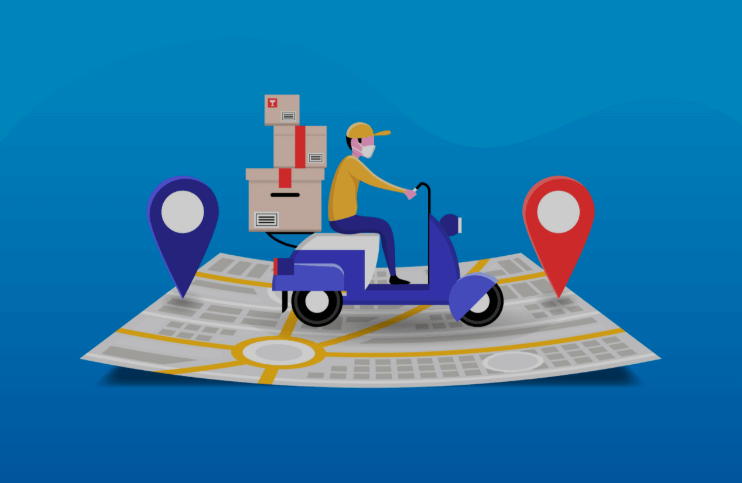
Customer Satisfaction
When something goes wrong with delivery, whether the item is late, arrives damaged, or never arrives at all, the customer doesn’t blame the road conditions, the logistics partner, or network issues. They blame the business owner. That frustration becomes personal because customers see delivery as part of the product experience. A delayed or failed delivery quickly cancels out the excitement they had about buying the item in the first place. In Nigeria, where word-of-mouth and referrals still matter deeply, one poor experience can cost more than just one sale.
Reputation
Reputation in online business travels fast and lasts long. One tweet about a failed delivery or a frustrated Instagram story can influence how dozens, even hundreds, of potential customers see your brand. A single bad review can stop 20 others from clicking "Buy Now." And most of the time, those reviews aren't about the product itself; they’re about how the product was delivered. Nigerian customers have become more vocal, and trust is hard to earn back once it's broken. Brands that pay close attention to delivery quality naturally enjoy better social proof and community trust.
Repeat Business
Customers don’t return just because a product is good. They come back because the entire buying process, especially the delivery, felt smooth, respectful, and stress-free. When a customer receives their order on time, in good condition, and with clear updates along the way, they feel safe. That safety turns into loyalty. In Nigeria, where digital transactions still carry a hint of skepticism for many, a smooth last-mile delivery can build a strong emotional connection between customer and business owner. It tells the customer, You can count on us, and that’s the best marketing you’ll ever need.
Business Growth
Solving last-mile delivery challenges isn’t just a customer service win; it’s a business growth strategy. Businesses that figure it out early grow faster. Why? Because delivery reliability directly impacts customer retention, referrals, and brand confidence. And the more trust you build, the easier it becomes to scale, expand to new cities, and even attract investors or partnerships. In a market as vibrant and competitive as Nigeria, smooth delivery operations create a competitive edge that’s hard to copy.
In a place where electricity can go out mid-checkout, and road names might not exist on maps, last-mile delivery becomes more than a logistics term; it becomes a commitment to the customer. It's the handshake at the end of a digital conversation. And for businesses that are serious about winning in Nigeria, getting that handshake right every single time is non-negotiable.
Major Last-Mile Delivery Challenges in Nigeria
Delivering a package in Nigeria often feels like navigating an unpredictable maze, one filled with wrong turns, unanswered calls, sudden roadblocks, and unexpected costs. It’s not because businesses aren’t trying. It’s because the system that supports last-mile delivery is deeply flawed, and those cracks show up daily in the form of frustrated customers, overworked riders, and overwhelmed business owners. Understanding these challenges helps make smarter decisions, build better strategies, and set the right expectations for everyone involved. Here’s a deeper look at the real hurdles behind last-mile delivery in Nigeria:
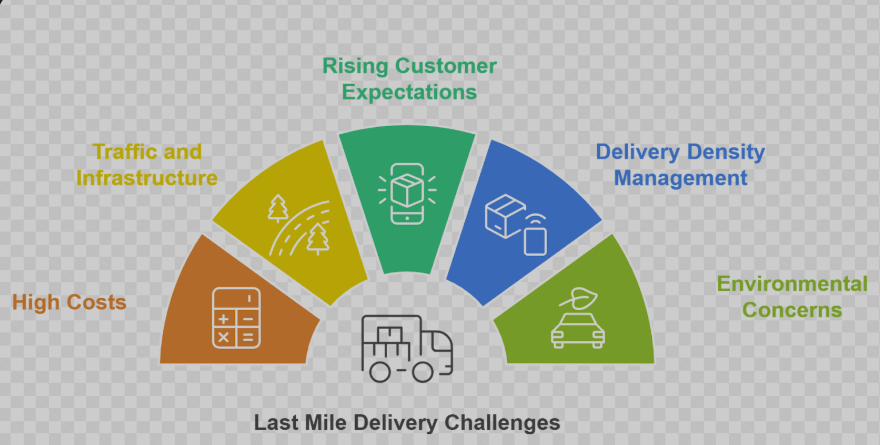
Poor Address Systems
This is one of the most frustrating and common challenges. Many parts of Nigeria still don’t have structured address systems. Some houses don’t have numbers, some streets have no names, and others are named unofficially by residents themselves. A rider might get to a junction and then need to call three times just to find out if the customer lives near “the green gate after the palm tree, by Mama Chioma’s shop.” Even digital maps can’t keep up with such directions. The result? Wasted time, failed deliveries, and unhappy customers.
Traffic and Poor Road Conditions
In cities like Lagos, Port Harcourt, and Abuja, traffic can turn a short trip into a long wait. A delivery that should take 15 minutes could stretch into two hours simply because of gridlock or flooded roads. Then there’s the problem of bad road conditions, such as potholes, muddy streets, or roads that suddenly become impassable during rainy seasons. Riders face constant delays, extra fuel consumption, and even bike damage just trying to fulfill one delivery. It’s tiring, time-consuming, and expensive.
Limited Delivery Infrastructure
Unlike developed countries where businesses can rely on national courier systems or robust in-house logistics, most Nigerian small and mid-sized businesses depend on third-party riders, many of whom are underpaid, poorly trained, or stretched thin across multiple orders. There are no centralized systems, and deliveries often rely heavily on the personal judgment, patience, and phone battery of one lone rider. When there’s no structure or backup plan, delays and errors are bound to happen.
High Delivery Costs
Last-mile delivery is the most expensive part of the entire shipping process, and Nigeria is no exception. Reaching customers in remote areas or traffic-heavy cities means riders burn more fuel, spend more time per order, and take on higher risks. Business owners are left with a tough choice: either increase product prices, charge high delivery fees, or absorb the cost themselves and lose profit. None of these options is ideal, especially when customers already expect affordable shipping.
Failed Deliveries
Sometimes everything goes right until the customer doesn’t pick up their phone, isn’t home, or suddenly wants the item sent somewhere else. Riders spend time and fuel reaching a location, only to return with the product because they couldn’t complete the delivery. Each failed trip means losses in time, energy, and money for the business. It also increases the chances of damaged items, customer complaints, and even canceled orders.
Security Risks
Delivery riders in Nigeria face real dangers. Some neighborhoods are high-risk due to theft, harassment, or unrest. In such areas, riders may cancel orders, avoid specific zones, or delay deliveries until they feel it’s safe. This adds another layer of unpredictability. For the customer, it’s just a delay. But for the rider and the business, it’s a question of safety and survival.
Advantages of Solving Last-Mile Problems
Getting last-mile delivery right in Nigeria isn’t just about fixing a process; it’s about unlocking powerful benefits that can transform how your business grows, earns, and is remembered. While the challenges are real, the rewards for solving them are even more real. When your delivery system works like clockwork, something incredible happens: customers feel safe, your reputation grows stronger, and your entire business starts to breathe easier. Here’s what truly changes when you take control of last-mile delivery:
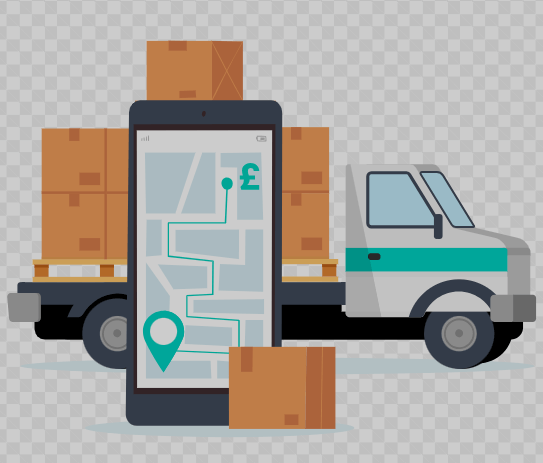
More Loyal Customers
When customers receive their orders quickly, safely, and without stress, they remember it. They tell others. They come back. Smooth delivery builds trust, and in a place like Nigeria, where skepticism about online shopping still exists, that trust is everything. A well-handled delivery turns a first-time customer into a loyal supporter who now sees your brand as reliable, professional, and worth sticking with.
Lower Returns or Cancellations
Failed or delayed deliveries often lead to cancelled orders, frustrated refund requests, or goods that come back damaged. But when the delivery process is fast, clear, and predictable, the chances of returns drop significantly. Customers are less likely to change their minds or cancel when they see that your system works. And fewer returns mean fewer losses for you.
Better Online Reviews
In Nigeria, reviews can make or break your online reputation. One happy customer singing your praises on WhatsApp, Instagram, or in a Google review can pull 10 more customers your way. A smooth delivery experience is one of the fastest ways to earn those 5-star ratings. Customers are far more likely to leave positive feedback when they feel heard, respected, and well-served, even if there was a small hiccup, as long as it was handled well.
Increased Sales
When customers know they can count on you to deliver, they buy more. Solving last-mile problems removes hesitation from the customer’s journey. Customers will add more to their cart when they’re not worried about delays, confusion, or damage. And word spreads, good delivery builds a good name, and a good name drives growth.
Peace of Mind
Running a business is already full of moving parts. Constantly chasing riders, handling failed deliveries, or calming down angry customers eats away at your energy. But when your delivery system works efficiently, your stress levels drop. You can focus on scaling your business instead of fixing daily delivery drama. It gives you space to breathe, plan, and think long-term.
Strong Competitive Edge
In Nigeria’s fast-growing online marketplace, customer experience is what separates you from the rest. Price alone won’t win. Flashy designs won’t keep them. But reliable delivery? That’s a game changer. If you’re the brand that delivers consistently while others are still making excuses, you immediately stand out. You become the business customers recommend, return to, and respect.
Strategies to Navigate Last-Mile Delivery in Nigeria
You don’t need to be a logistics expert or buy a dozen delivery bikes to win the delivery game. What you need is smart thinking, local insight, and the right tools, especially when you're running your store on a platform like Tradift. Delivery doesn't have to be a problem if it's approached with strategy, flexibility, and a little creativity. And in Nigeria, creativity often makes all the difference.
Successful last-mile delivery in this environment is less about perfection and more about practicality. It’s about meeting the customer where they are, even if that means navigating poor roads, unpredictable traffic, or incomplete addresses. If you understand your terrain and your customers, then delivery doesn’t have to be chaotic. It can become one of your strongest selling points.
One of the smartest moves is partnering with delivery services that already know the land. You don’t need to deliver everything yourself. Companies like Gokada, Kwik, Fez, or Sendbox already have riders who understand how to get through tight Lagos traffic, deal with rainy-day delays in Port Harcourt, or find unmarked houses in Ibadan. Using local partners takes the stress off your shoulders while keeping things moving for your customers. And when they offer real-time tracking or status updates? Even better. Customers feel more in control when they can see their package moving.
Another helpful idea is to stop thinking that every customer wants home delivery. They don’t always. Some customers would prefer to pick up their order at a nearby shop or collection point, especially when their area has confusing directions or delivery is delayed by traffic. Offering pickup locations or drop-off kiosks in key zones gives customers the power to choose what’s more convenient for them.
Now, if you're using a tool like Tradift, this is where things get even smoother. By connecting your store to smart delivery APIs, you can automate things like dispatching, updates, and tracking. Instead of spending your time calling riders or texting customers one by one, the system takes over and keeps everyone in the loop. It makes your store feel sharp, modern, and reliable, even if you're just one person running it all.
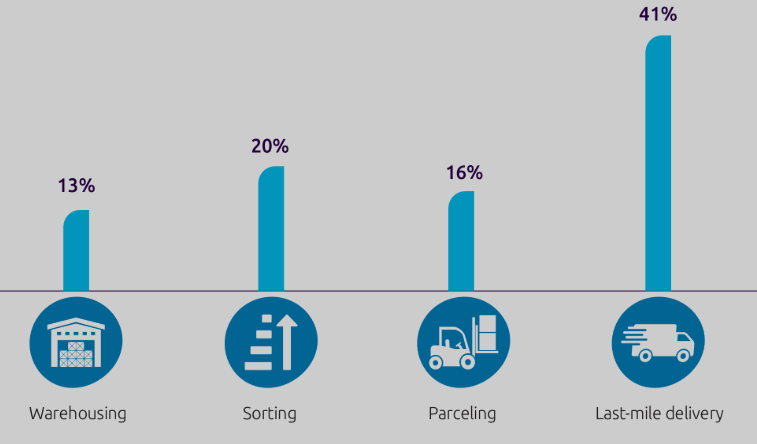
Also, don’t treat all deliveries the same. What works for someone living in central Lagos might not apply to someone living three hours outside Abuja. Splitting your delivery zones by region, distance, or traffic behavior helps you set more realistic delivery fees and timelines. This way, you’re not overpromising or disappointing customers. You’re delivering according to your capacity, and that honesty builds trust.
And yes, communication is everything. When customers buy online, especially in Nigeria, they want assurance. Something as simple as a message that says, “Your package is on the way,” or “The rider is nearby” can completely change a customer's mood. Silence makes customers anxious. Regular updates make them feel seen, valued, and safe.
To reduce confusion, encourage your customers to drop a pin, describe their area, or even upload a photo of their gate. Most times, deliveries fail because the rider simply can’t find the place or spends 20 minutes on the phone asking for directions. The more information you collect upfront, the smoother the process becomes.
Another smart trick? Give customers options. Not everyone needs the same-day delivery. Some want it fast, others want it cheap. So let them choose. Offer standard, express, or same-day delivery, price each option clearly, and let them decide what works for them. That way, no one is forced into a system that doesn't fit their lifestyle or budget.
Finally, always pay attention to how your delivery process is performing. Keep track of how many deliveries are successful, how long they take, and what your customers are saying about the experience. Platforms like Tradift let you see the full picture of what’s working, what’s lagging, and where you need to improve. That feedback helps you fix problems before they get big, and it shows customers that you care about their satisfaction from start to finish.
Navigating last-mile delivery in Nigeria isn’t about having all the answers. It’s about building a system that works with the reality around you, not against it. With the right local partners, smart tools, customer-focused options, and constant communication, you can turn what used to be a delivery headache into a smooth, powerful part of your business.
What Customers Can Do to Help in Nigeria
Smooth delivery is a two-way street. While business owners work hard to get packages out on time, customers also hold an important piece of the puzzle. A lot can go wrong between the moment someone clicks “checkout” and the knock on their door, but some of those hiccups can be avoided when customers play their part.
The rider is halfway across town, stuck in traffic, sweating under the sun, and trying to reach someone who didn’t pick up or send a vague address like “after the big mango tree, close to the blue gate.” Deliveries fail not just because of poor infrastructure or traffic, but because communication breaks down, and that’s something we can fix together.
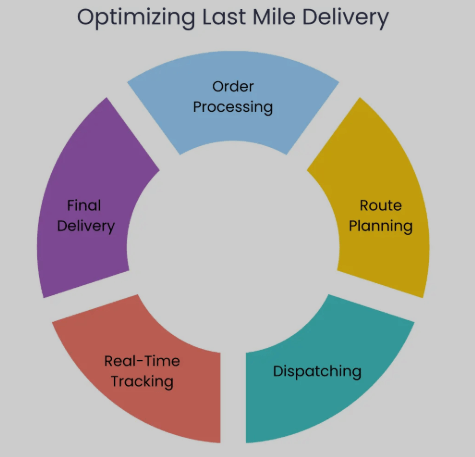
When customers give the right phone numbers and pick up calls, it saves everyone time and frustration. Riders don’t have to circle endlessly or return with undelivered packages. Even a simple “I’m not home, but you can leave it with the security guard” makes a difference.
Sharing clear addresses, ones with street names, house numbers (if available), nearby landmarks, or even a dropped location pin, goes a long way. Not every area has street signs or Google Maps accuracy, especially in some parts of Nigeria, so the more information the rider has upfront, the less chance for confusion or delay.
Additionally, understanding how delivery zones work. For example, if you stay outside the city center or in a rural community, your delivery might take a little longer or cost a bit more. It doesn’t mean you’re being sidelined; it simply reflects the extra effort, distance, or risk required to get to you. A little patience and awareness make the process fairer for everyone involved.
And sometimes, just being available at the agreed time makes everything easier. Missed calls, unanswered messages, or last-minute changes of address can turn a smooth delivery into a full-on logistics mess. Staying reachable and responsive during the delivery window helps make sure your package reaches you without delay or drama.
At the heart of all this is one thing: collaboration. When business owners and customers work together, communicating, respecting timelines, and being flexible, the entire delivery process becomes faster, safer, and far more enjoyable. It stops being a battle and becomes a partnership. Because at the end of the day, both sides want the same thing: a happy delivery, a satisfied customer, and a business that grows stronger with every single drop-off.
Helpful Statistics on Business Owners and Delivery in Nigeria
Hard numbers paint a clear picture of how much the last kilometre matters to Nigerian commerce, and why business owners who master it see outsized rewards.
A 2024 Statista–Paystack survey of digital customers across Lagos, Abuja, and four other urban hubs found that 56 percent of customers quit the checkout page the moment delivery looks uncertain or too expensive. That single moment of hesitation is now the leading cause of cart abandonment in the country, out‑ranking price shock or payment failure.
Customer‑service regulators confirm the same pattern on the complaint side. The Nigerian Communications Commission’s consumer desk logged almost seven in every ten e‑commerce grievances in 2024 as delayed or failed delivery issues, a steep rise from barely half of all complaints just three years earlier.
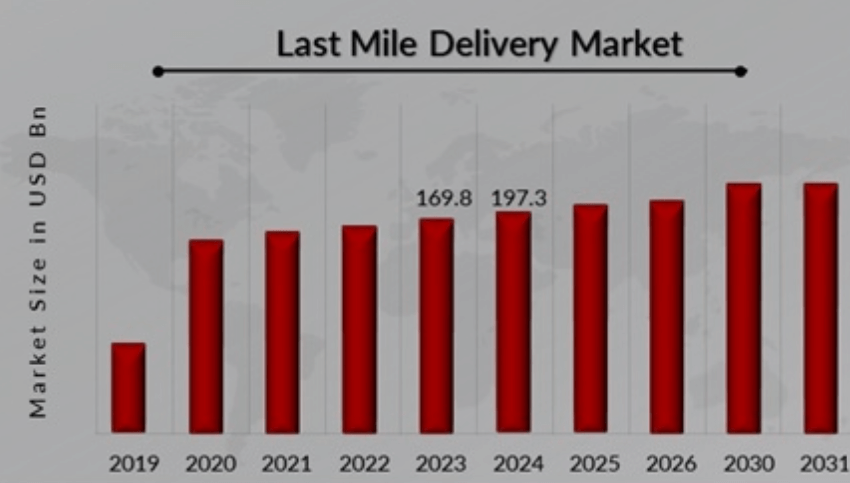
Consultants at McKinsey tracked 78 omnichannel retailers in West Africa and discovered that brands that can guarantee same‑day fulfilment enjoy 2.3 times more repeat orders than competitors who stick to the traditional within 3‑5 days promise. The bump in loyalty is most pronounced for everyday essentials, such as fashion, beauty, and groceries, where customers reorder often and punish delays quickly.
Behind those transactions sits Nigeria’s vast small‑business engine. SMEDAN’s latest census puts the national SME count at roughly 42 million enterprises, representing 96 percent of all registered businesses and 48 percent of GDP; more tellingly, just over a third of these firms now depend on some form of online delivery to reach customers. Each extra day a package spends in traffic or gets returned to sender chips away at that GDP slice.
Technology is starting to close the gap. Pilot projects run by Lagos fulfilment start‑ups using dynamic routing, live‑tracking links, and address‑verification APIs (the same stack Tradift integrates) report up to a 40 percent drop in failed‑delivery trips within six months of deployment. Fewer wasted miles translate directly into lower rider costs, quicker cash cycles for merchants, and far fewer Where is my order? Calls to support desks.
However, in Nigeria’s e‑commerce race, the winners aren’t the stores with the flashiest ads or even the cheapest products, but they’re the ones that make the last mile feel invisible. Crack the delivery code and you don’t just save on logistics; you unlock higher conversion, stickier customers, and a reputation that markets itself.
Getting the Last Mile Right in Nigeria
Solving last-mile delivery in Nigeria isn’t about being perfect, but it’s about being intentional. It’s about understanding that the real work doesn’t end when an order is placed, packed, or handed over to a rider. The real win is when that package reaches the right hands, at the right time, and leaves the customer feeling like they’ve been valued every step of the way.
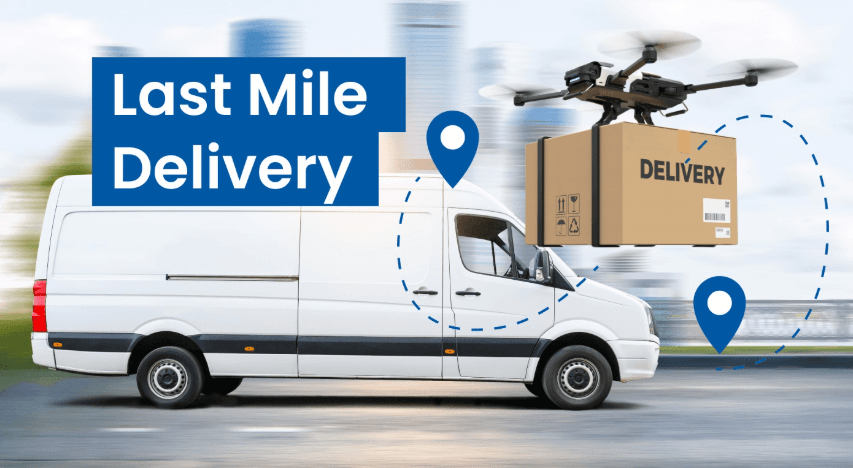
Yes, Nigeria has its challenges, including rough roads, missing addresses, unpredictable weather, and congested cities, but none of these are impossible to overcome. The businesses that are thriving today aren’t doing so because they avoided those problems. They’re thriving because they adapted. They chose smarter tools, built stronger relationships with their delivery partners, and found better ways to talk to their customers.
And that’s what last-mile delivery is really about: trust. If customers trust that you’ll keep your word, that their package will arrive when promised, and that you care enough to follow up, they’ll come back. Again and again. That trust is your most valuable currency.
With a platform like Tradift, many of the biggest headaches, from order tracking to logistics integration, are already simplified for you. But technology alone isn’t enough. It’s how you use it. It’s how you communicate. It’s how you respond when things don’t go as planned. Every message you send, every call you make, every choice you take in managing delivery, even in the tiniest ways, adds up to a better experience for your customer.
So whether you're a small business just getting started or a growing brand ready to scale, this is your moment to stand out. Keep refining your process. Keep listening to your customers. Keep working with delivery teams that understand the terrain. Every improvement, no matter how small, brings you closer to delivery excellence, and in today’s economy, that’s what sets you apart. You deliver with care and clarity, like your business depends on it, because it does.
